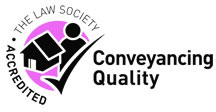Inheritance Tax
Inheritance Tax is a tax payable on the estate of someone who has died.
Estate means the property, money and possessions of the person who has died. Inheritance Tax is payable on all assets, even assets located abroad.
The threshold for paying Inheritance Tax is currently £325,000 (for the tax year 2020/2021). Tax is payable at 40% on the amount over £325,000.
If the estate is worth less than £325,000, then usually Inheritance Tax is not payable.
Around 4% of all estates in England & Wales are subject to the payment of Inheritance Tax, raising around £5.2 billion in 2019/2020 for HM Revenue & Customs. (Source – Gov.UK)
Approximately one in four estates paying Inheritance Tax will be subject to investigation by HM Revenue & Customs. Clearly, care needs to be taken when the Inheritance Tax forms are completed to ensure they are completed correctly.
There may be other situations where the estate is worth more than £325,000 but Inheritance Tax is not payable, for example, if the estate passes to a spouse or civil partner or part of the estate passes to charity.
It is possible to plan ahead to reduce the Inheritance Tax potentially payable on your death. This is achieved by making sure your estate utilises all the Inheritance Tax allowances available and careful lifetime Inheritance Tax planning.
Making a tax efficient Will is the first step and taking advice at an early stage is vital if you think your estate may be subject to Inheritance Tax on your death.
Leaving money to charity in your Will can reduce the Inheritance Tax rate to 36%. At least 10% of the net estate needs to be left to charity to qualify for the reduced rate.
Are there any Inheritance Tax allowances or reliefs available?
- Nil Rate Band (NRB) – This is available on all estates. The current rate (for the tax year 2020/2021) is £325,000. However, you need to bear in mind that any gifts made in the seven years prior to death may lessen the amount of the Nil Rate Band available.
- Transferable Nil Rate Band (TNRB) – This is the amount of the unused Nil Rate Band allowance which can be transferred from the estate of the first spouse or civil partner to the estate of the second spouse or civil partner. The maximum amount that can be claimed is £325,000 for the tax year 2020/2021. However, care needs to be taken where the death of the first spouse or civil partner died before the 13th November 1974 as the amount of TRNB available may be restricted or unavailable.
- Residence Nil Rate Band (RNRB) – Applies to deaths on or after 6th April 2017. The allowance is worth £175,000 for the tax year 2020/2021. From the tax year 2021/2022 the amount available each tax year will increase each year in line with inflation, based on the Consumer Price Index. The property must be inherited by direct descendants to qualify for the allowance. Any surplus allowance cannot be used against the rest of the estate.
- Transferable Residence Nil Rate Band (TRNRB) – If the home is worth less than the maximum available RNRB, the unused amount can be transferred to the estate of the second spouse or civil partner to die. TRNRB is available when the second spouse or civil partner of a couple dies on or after the 6th April 2017, irrespective of when the first of the couple died.
Where an estate is worth more than £2 million, then the RNRB will gradually reduce, or taper away, even if a home is left to direct descendants. The RNRB available will reduce by £1 for every £2 that the estate is worth over £2 million.
Care also needs to be taken where property is held in a trust as the property may not necessarily qualify for the RNRB allowance.
Doesn’t everyone have a £1 million Inheritance Tax allowance?
Not necessarily.
To achieve an Inheritance Tax allowance of £1 million, it requires a married couple or civil partners and making full use of the NRB, TNRB, RNRB & TNRB allowances.
It would require a property with a value of at least £350,000. If the property in the estate is worth less than this amount, then the full RNRB and TRNRB allowances will be unused.
Lifetime IHT Planning
Making a Will is very important, but it is possible to carry out some lifetime tax planning too, if done in good time.
Potentially Exempt Transfers (PET)
This is the most common and effective method to lessen the value of an estate and is commonly known as the “Seven Year Rule”.
There is no limit on the value of the gift being made, so it is possible to make substantial gifts. If the person giving the gift survives for seven years after making the gift, the value drops out of the person’s estate. This means that once the seven years are up, then the value of the gift is not considered when calculating the value of the estate for Inheritance Tax purposes.
Remember any gifts between spouses or civil partners (if resident in the UK) and to charities are exempt – there is no limit on the amount given and there is no need for the person giving the gift to survive for seven years.
Exempted Gifts
Many people do not utilise the annual exemption. Each tax year it is possible to give away £3,000 worth of gifts without them being considered as Potentially Exempt Transfers.
If you have not used your annual exemption, you can carry it forward to the next tax year, but it can only be carried forward for one year.
Exempted gifts include wedding/civil ceremony gifts and gifts to charity and political parties. Payments to pay another person’s living costs are also exempted gifts.
There is also the small gifts exemption of up to £250, where you can give as many gifts of up to £250 as you wish. However, the recipient must not have been someone another exemption has been used against, such as the annual exemption or wedding gifts.
Beware of Gifts with Reservation of Benefits (GROB’s)
A gift needs to be a gift in the true sense of the word (i.e. given without strings attached) to qualify as a PET. If any benefit if retained, then the gift is a GROB and will form part of the estate when calculating Inheritance Tax. Therefore, if you give your house to your children but continue to live in it, then this is a GROB and will form part of your estate.
It is possible to make a gift of property, continue to live in it and qualify as a PET. Rent needs to be paid to the new owner at market rate, you need to pay your share of the bills and live there for at least seven years. If part of the property is given away no rent needs to be payable, but the new owners need to live in the property too – which could be uncomfortable!
Another pitfall to be aware of is where money has been given to children to purchase property and you later move in with the children. There may be a time gap of many years, but HM Revenue and Customs would view this as a GROB, and the monies would form part of your estate for Inheritance Tax purposes.
Beware of Failed Potentially Exempt Transfers
Potentially Exempt Transfers potentially have a sting in the tail.
If the estate must pay Inheritance Tax, then it is charged at 40% on gifts given in the three years before death.
The Inheritance Tax payable is usually paid by the person receiving the gift unless the person’s Will states otherwise.
Taper relief is available on gifts made three to seven years before death. The closer the gift is to seven years, the greater the relief available.
| Years between gift and death | Tax rate |
| 0 – 3 years | 40% |
| 3 – 4 years | 32% |
| 4 – 5 years | 24% |
| 5 – 6 years | 16% |
| 6 – 7 years | 8% |
| Over 7 years | Nil |
Gifts from surplus income
This is a less well-known method of Inheritance Tax planning. It is possible to make regular payments to someone out of your surplus income and reduce the value of your estate. This means making gifts out of any remaining income once your outgoings have been made. There must be no payments from your capital. Careful and detailed records need to be kept satisfying the requirements of HM Revenue & Customs.
Taking out insurance
If there is the possibility that your estate will have to pay Inheritance Tax on your death, then you may want to consider taking out an insurance policy to pay the tax due.
The policy needs to be written in trust, so that it does not form part of your estate and is payable to the Executors of the estate to ensure they can pay the Inheritance Tax.
Another benefit is that the premium paid for the policy also reduces the value of the estate.
The rules are complex, and it is recommended to seek advice from our experienced and knowledgeable team.
*** The tax rates are subject to change and are correct for the tax year 2020/2021 ***
Speak to a member of our Wills, Trusts, Probate & Court of Protection team for more information
Call our offices on 0191 567 0465 or Request a call back









